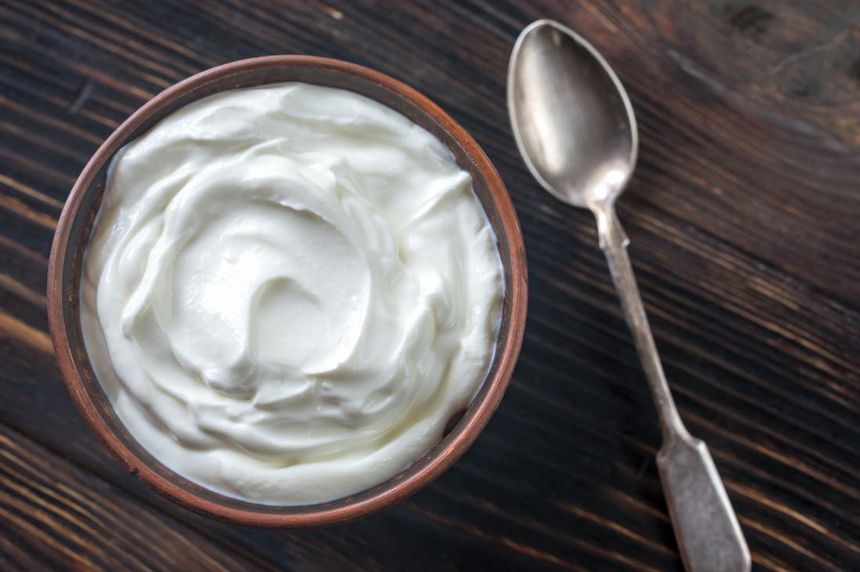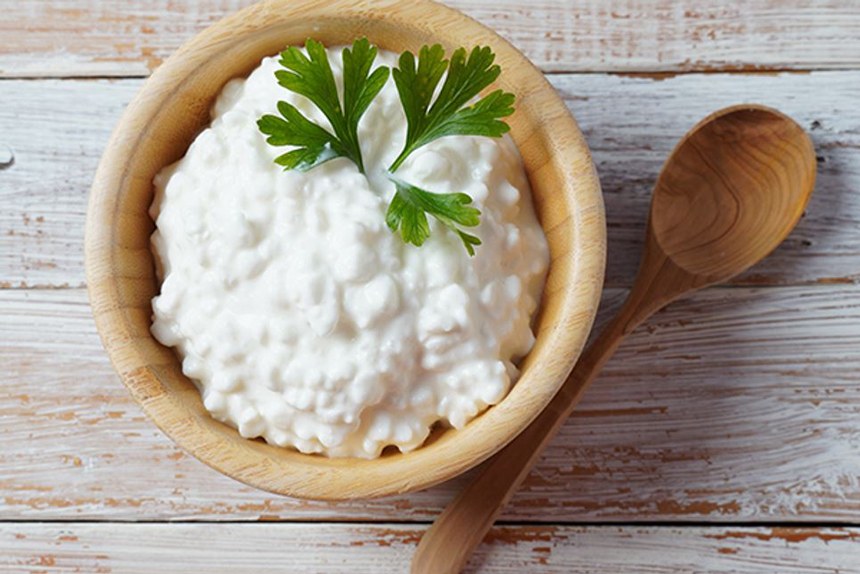Plain Yogurt

The transformation of milk by live cultures, including Lactobacillus bulgaricus and Streptococcus thermophilus, sets the stage for yogurt’s creamy texture and tangy flavor. In addition to its probiotic profile, yogurt provides a protein-packed punch, aiding in muscle maintenance and overall satiety.
Its rich calcium content is fundamental for bone health, contributing to the recommended daily intake and supporting optimal skeletal function. Beyond its nutritional prowess, yogurt’s probiotics may have a role in modulating immune responses, potentially enhancing your body’s defense mechanisms.
A study published in 2019 in Madrid, Spain, suggests that the probiotics found in yogurt can positively influence the gut microbiota, fostering a balanced and diverse community of microorganisms. [2]
Dry Curd Cottage Cheese (Farmer’s Cheese) or Fermented Cottage Cheese

Dry curd cottage cheese, also known as farmer’s cheese, is a versatile and probiotic-rich option. Crafted through the fermentation of milk, this cheese undergoes a process where bacteria work their transformative magic, breaking down lactose into more digestible forms.
The result is a delightful, crumbly cheese with a distinctive tang. Apart from its probiotic content, dry curd cottage cheese is a commendable source of protein, essential for muscle repair and overall cellular function. It also boasts notable amounts of calcium and phosphorus, contributing to bone health and maintaining the integrity of your skeletal system.
Research has shed light on the potential of fermented dairy products like cottage cheese to impact the gut microbiota positively. [3]





